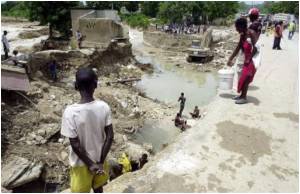According to a new RAND Corporation study, federal support for health security research is heavily weighted toward preparing for bioterrorism and other biological threats.

The findings, published in the December issue of the journal Health Affairs, come from the first-ever inventory of national health security-related research funded by civilian agencies of the federal government.
Researchers say recent events such as Superstorm Sandy, tornadoes in the Midwest and major earthquakes around the world highlight the need to prepare the nation's health care system for a broad array of natural and manmade disasters.
"Although disaster preparedness requires active involvement of the private and public sectors, the federal government is the primary sponsor of the basic and applied health research needed to develop new technology and strategies to prepare for and respond to large-scale disasters," said the study's senior author, Dr. Art Kellermann, who holds the Paul O'Neill Alcoa Chair in Policy Analysis at RAND. "Our study suggests the current mix of federally-funded national health security research projects may not be ideally configured for achieving the broad preparedness goals that face our nation."
RAND researchers were asked by federal health officials to conduct a first-ever inventory of non-classified, civilian national health security research funded by the federal government. Military research and internal research conducted by the agencies themselves was not included.
Beginning in 2010, researchers canvassed seven non-defense agencies whose research addresses topics relevant to the objectives of the National Health Security Strategy, a plan completed in 2009 to guide efforts by the government and others to defend the nation from a large-scale public health threats, both natural and manmade.
Advertisement
The studies identified spanned a 13-year period, with most awarded between 2003 and 2010 when there was robust federal funding for health security research. The final list totaled 1,593 unique research projects, most of which were funded before the creation of the National Health Security Strategy.
Advertisement
Fewer than 10 percent of the total pool of projects addressed natural disasters such as earthquakes, hurricanes, tornadoes or floods. The remaining projects addressed threats that were chemical (8 percent), radiological (5 percent), nuclear (4 percent) or explosive (4 percent).
The existing research heavily emphasized basic laboratory research, a likely reflection of the large role of the research sponsored by the National Institutes of Health. Far fewer studies were oriented toward translating basic research into actionable practice, or evaluating promising strategies and techniques to confirm their effectiveness.
RAND researchers say the rationale for the current mix of research projects is not clear. In the course of the project, they observed that each of the agencies studied determines its research priorities with little or no effort to coordinate their decisions with those of other agencies.
"The officials we spoke with were not only willing, but eager, to engage in cross-department information sharing to help the nation develop a more-coordinated and efficient approach to health security research," said Shoshana R. Shelton, the study's lead author and a project associate at RAND.
In order to get more bang for health security research spending, RAND researchers recommend agencies employ a risk-based approach to priority setting that takes into consideration the probability of a threat occurring, the magnitude of damage it could inflict and the availability of countermeasures to limit or reduce its consequences.
In addition, researchers recommend a voluntary process of information-sharing between agencies to improve coordination, and a shared approach to track the progress and results of research projects. This would dramatically improve future efforts to inventory health security research projects and ensure that findings quickly reach the field.
Source-Eurekalert










